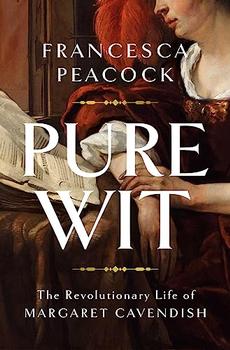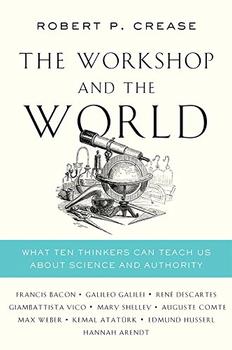Summary | Excerpt | Reviews | Beyond the book | Read-Alikes | Genres & Themes | Author Bio

The Seventeenth Century and the Birth of the Modern Mind
by A.C. GraylingWhy do you think you think the way you think?
That rather flippant question conveys a genuinely serious idea. Most people probably spend little time – if any – thinking about why they believe what they believe. But as A.C. Grayling demonstrates in his sprawling, overstuffed, and occasionally revelatory intellectual history, The Age of Genius: The Seventeenth Century and the Birth of the Modern Mind, the way we think is very much a product of our time. In fact, it's the rare thinker who can think outside of his or her time – and those are the people who tend to be lionized (Isaac Newton, Rene Descartes, Nicolas Copernicus) or demonized (Giordano Bruno, Baruch Spinoza, Copernicus). Anyone can order from the menu that's presented to him or her, but dreaming up new items – some of which seem downright impossible to concoct – takes a genuine visionary.
And, in the seventeenth century, Grayling makes painfully clear, what was being served was established religion. Anyone who dared order from the non-believer's bill of fare was to be fed a most bitter repast – often as a last meal. As Grayling puts it in one of the book's many blunt iterations of his thesis, in the seventeenth century "The stage was thus set for conflict between, on the one hand, a new world-view based on commitment to observation and reason unconfined by the requirement to square with religious doctrine, and, on the other hand, the authority of scripture and the Church."
Building a book-length argument around his contention that "the seventeenth century is the moment when one world-view was displaced by another because the scientific displaced that of faith," Grayling paints a picture of astronomers, mathematicians, medical doctors, and even alchemists often reaching conclusions that even they dearly hoped weren't true – because the answers meant opposing Christian doctrine, unwise if you wanted to keep your job, freedom or head.
In one of the most ironic twists in western Civilization, Grayling argues that it was the religious wars of the sixteenth and early seventeenth century that gave rise to the scientific discoveries that would come to displace religion as a primary means of understanding the physical world. As armies crisscrossed Europe, military commanders began studying the trajectory of cannonballs, sailors plotted the stars to determine more efficient means of navigation, and army surgeons started making discoveries about the circulation of the blood and the presence of germs. Most of this study led to conclusions that contradicted the religious doctrine propagated by the powerful Popes and princes of the Western World.
And because a handful of courageous and independent-minded thinkers followed the science where it led, a revolution began, resulting in the balance of power morphing from the established Church fathers to the path-breaking scientists who comprised London's first government-sanctioned scientific body, The Royal Society. "At the beginning of the century the Church was prepared to kill in order to keep control of what can be thought; by the century's end this was no longer possible in Europe."
Grayling returns again and again to that keynote theme but along the way his book takes lots of interesting detours, exploring such important ideas as how the rise of letter writing fueled the scientific revolution and how even the most learned minds were sometimes seduced into studies of the occult, including a fevered pursuit of the legendary "Philosopher's Stone" (see 'Beyond the Book'). To my ear, though, the tone of the Grayling's prose is rather flat – think "textbook" and you've pretty much got it – so many of these unexpected sidelights are not presented as compellingly or dramatically as one might hope. And he sorely needs an editor to prune his interminable catalogue of dates, princes and battles that comprise the sections on the Thirty Years War, which requires martial discipline on the part of the reader to get through.
But on balance, Grayling has put forward a powerful argument for independent thinking as a vehicle of salvation, and if he gets lost in the weeds from time to time, at least it's nice to be in the presence of someone who hasn't mistaken the grasslands of the earth for the fabled Garden of Eden.
![]() This review was originally published in The BookBrowse Review in March 2016, and has been updated for the
May 2017 edition.
Click here to go to this issue.
This review was originally published in The BookBrowse Review in March 2016, and has been updated for the
May 2017 edition.
Click here to go to this issue.

If you liked The Age of Genius, try these:

by Francesca Peacock
Published 2024
A biography of the remarkable - and in her time scandalous - seventeenth-century writer Margaret Cavendish, who pioneered the science fiction novel.

by Robert P. Crease
Published 2019
A fascinating look at key thinkers throughout history who have shaped public perception of science and the role of authority.
Your guide toexceptional books
BookBrowse seeks out and recommends the best in contemporary fiction and nonfiction—books that not only engage and entertain but also deepen our understanding of ourselves and the world around us.